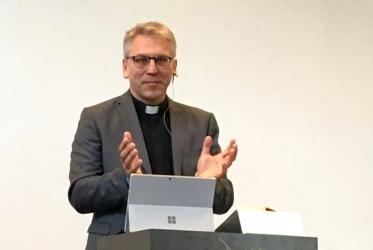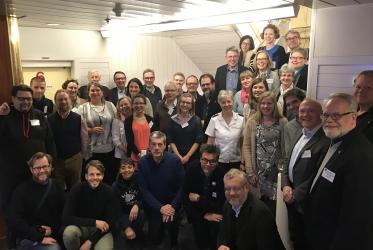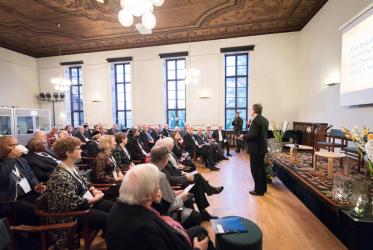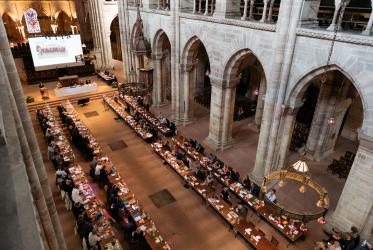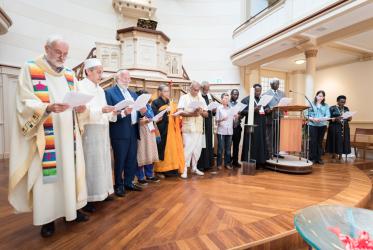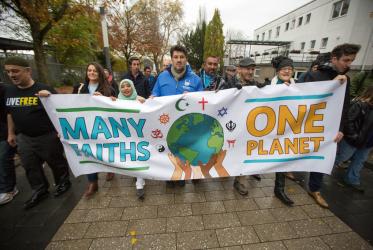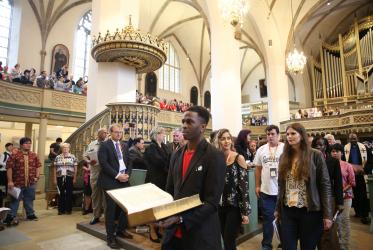Displaying 41 - 60 of 97
05 July 2019
A worried but hopeful man
25 June 2019
Dealing with traumas and healing of wounds
04 June 2019
10 years of Patriarchal leadership celebrated in Moscow
01 February 2019
WCC president for Europe: “Develop local dialogue”
22 October 2018
Community of Protestant Churches in Europe gathers for 8th Assembly
28 September 2018
Building bridges of faith in the HIV response
25 July 2018
COP 23 “debriefing” brings faith and ethical perspectives
23 January 2018
Trying to do good for the world
18 December 2017
Roman Catholic-WCC group focuses on peace-building, migration
19 September 2017
WCC moderator reflects on Reformation in today’s world
04 August 2017
Ecumenical Patriarch visits WCC
24 April 2017
An interview with the Ethiopian Patriarch, Abune Matthias
14 February 2017

